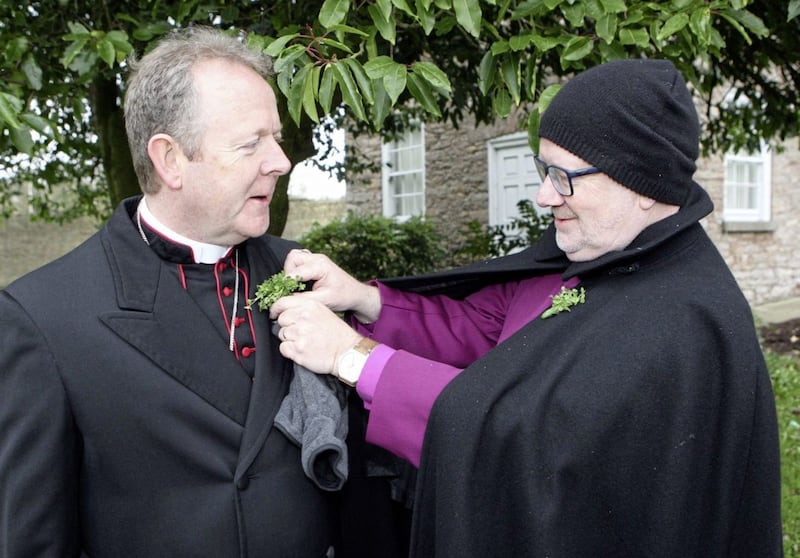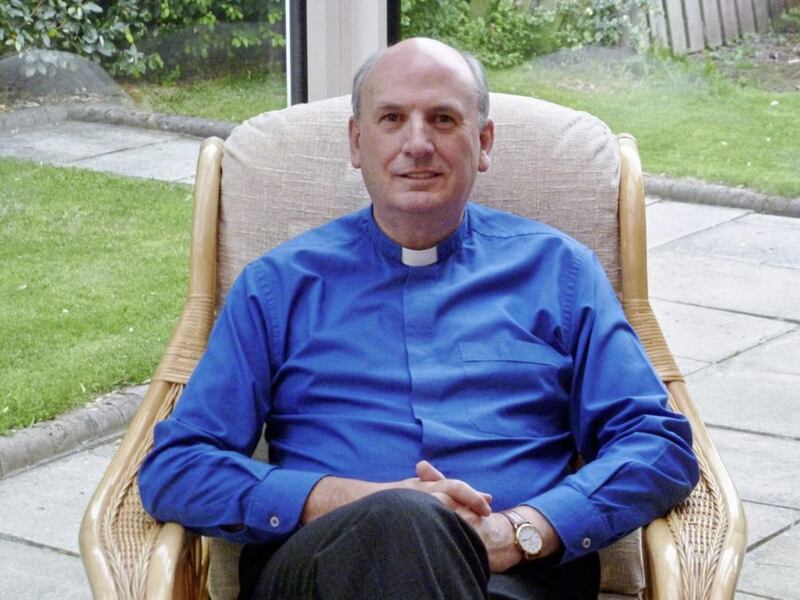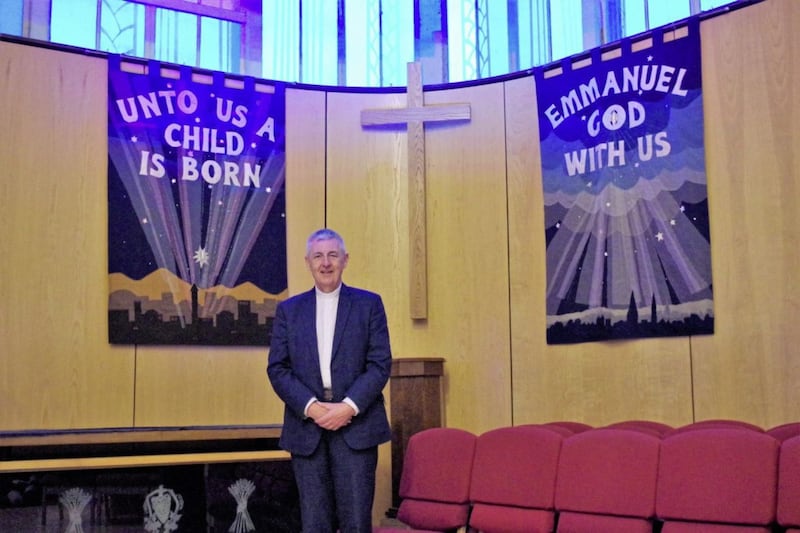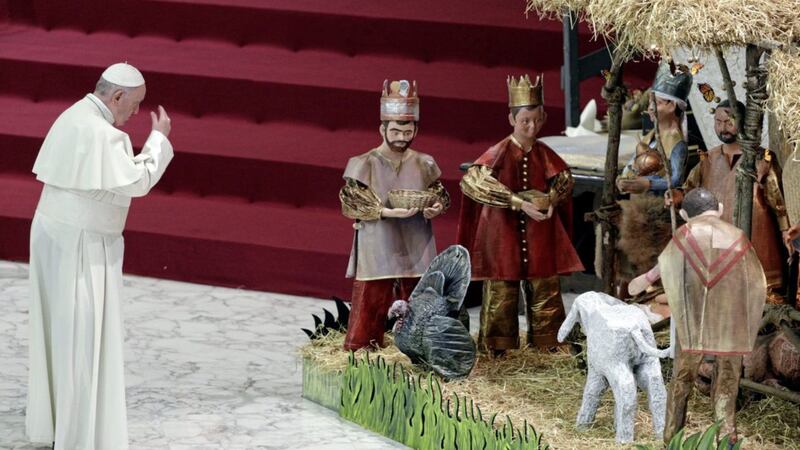A joint message from Dr Eamon Martin, the Catholic Archbishop of Armagh, and Dr Richard Clarke, the Church of Ireland Archbishop of Armagh

Jesus readily identified with the homeless. For much of His ministry He was a wandering preacher, travelling here and there without a permanent home, healing, teaching and bringing comfort to others
THERE is no place quite like home - especially at Christmas.
Many people who are working and living outside of Ireland are already counting the days before coming home to spend the festive season with their families and loved ones.
These days will be amongst the busiest of the year in our airports and on our roads as individuals make that special journey.
Home is a place of memories of years gone by, filled with familiar sights, sounds and smells and, of course, with the people who are most special to us.
Home is not only a place of security and love, but having a home also gives each of us a sense of personal dignity.
No wonder they say home is where the heart is. Níl aon tinteán mar do thinteán féin.
Think for a moment of what it would be like this Christmas to be without a home. To be without a place of shelter. To be out in the cold.
To be on your own, living on the streets. Sleeping in the shelter of a shop doorway. Not knowing where your next meal is going to come from.
Not sure whether or not someone is going to attack you or abuse you for no other reason than the fact you are destitute or 'look different'.
Sadly that is the reality for many people in Ireland today who are homeless. The endless repetition of statistics about housing and homelessness, particularly at this time of the year, should not dull the reality that behind each of these numbers lies a personal story of distress and hardship.
Jesus readily identified with the homeless. For much of His ministry He was a wandering preacher, travelling here and there without a permanent home, healing, teaching and bringing comfort to others.
Even at the beginning of His life - in the story retold in the Christmas Gospel - He was born and laid in a manger, not within the warmth of a human home.
Jesus said that when you and I reach out the hand of friendship to those in need, it is the same as reaching out to Him, as much as reaching out for Him.
During the summer, speaking to those who avail of the services of the Capuchin Day Centre for homeless people in Dublin, Pope Francis said: "Do you know why you come here with trust? Because they help you without detracting from your dignity. For them, each of you is Jesus Christ."
May Christ find a place in your heart and in your home this Christmas.
___________________________________________________
Christmas message from Rev Billy Davison, President of the Methodist Church in Ireland
In her Magnificat, Mary doesn't focus on the magnitude of their dire circumstances, but on the greatness of her God and her life is filled with hope and gratitude

DURING 2018, a number of important milestones were remembered which brought new hope of a brighter future, such as the 20th anniversary of the Good Friday Agreement, but others, brought into sharp focus the pain, suffering and darkness of our troubled past.
It was also the year in which we commemorated the centenary of the ending of the First World War - the war that was to 'end all wars' yet we are still witnessing the distress and awful consequences caused by wars around the world to this day.
The casualties in such conflicts include children dying through food and medicine shortages, with powerless mothers looking on with faces that seem to say 'there is no hope'.
Hope is a characteristic which is in short supply in many quarters today.
At a time when the country is so divided over issues like Brexit and has no local functioning executive or assembly, it is not easy to convince people that there is hope when everything outwardly appears to militate against it.
This lack of hope is a global issue as many countries strive to cope with all kinds of domestic crises with diminishing resources.
The words of Isaiah the prophet are very apt: "Then they will look towards the earth and see only distress and darkness and fearful gloom, and they will be thrust into utter darkness" (Isaiah 8:22).
However, the prophet speaks of a time when, "The people walking in darkness have seen a great light" (9:2).
One way we celebrate Christmas is with the switching on of sparkling lights across the world to celebrate this very special season.
But what make Christmas truly special is the coming of Jesus Christ, who said: "I am the light of the world. Whoever follows me will never walk in darkness, but will have the light of life" (John 8:12).
Human resources on their own are insufficient to put right the problems facing the world.
Mary and Joseph faced many challenges on the first Christmas as they made their way to Bethlehem, when Mary gave birth to the Saviour of the world.
In her Magnificat, Mary doesn't focus on the magnitude of their dire circumstances, but on the greatness of her God and her life is filled with hope and gratitude.
She said: "My soul magnifies the Lord and my spirit has rejoiced in God my Saviour" (Luke 2:46).
As we receive the gift of Christ by God's grace our spirits are lifted above the gloom and despondency around us find fresh resources of peace and hope and the joy of sins forgiven.
___________________________________________________
A Christmas message from Rt Rev Dr Charles McMullen, Moderator of the Presbyterian Church in Ireland
Followers of Christ have not always lived out the Good News in the way that they ought, reflecting instead division, sectarianism and harsh attitudes

WE are living in days of profound uncertainty. Perhaps one word - Brexit - encapsulates it, particularly in relation to its outworking on both parts of our island home.
We have all painted various pictures of what Brexit will look like and what will actually happen next year - and yet it remains an ongoing story.
This year the retelling of stories from the First World War in a more inclusive manner culminated as we marked the centenary of the Armistice.
It has been significant and healing, now that the sacrifice from every part of Ireland has been highlighted and not simply airbrushed out of history.
All sections of Irish society are in need of a different and a better story.
Two thousand years ago the angels punctured an equally dark sky and stilled the beating hearts of terrified shepherds as they announced good news that would bring great joy for all the people: "Today in the town of David a Saviour has been born to you; he is Christ the Lord" (Luke 2:10).
Followers of Christ have not always lived out the Good News in the way that they ought, reflecting instead division, sectarianism and harsh attitudes.
However, generations of Christian pilgrims and disciples have been inspired to take the Gospel of Jesus Christ from what was once known as the 'land of saints and scholars' to the very ends of the earth.
They display the unconditional love and the absolute truth of the One who came into this world, died on a Cross and rose again, so that those who believe in him might have life in all its fullness.
Recently I heard Rev Dr Yohanna Katanacho, professor of biblical studies at Bethlehem College, describe his story as a Palestinian Israeli Evangelical Christian.
His rich Arab Christian background and his ability to speak both Arabic and Hebrew have pushed him, he said, "to be a peacemaker and messenger of love as well as justice in a country that is full of segregation and hatred".
So many stories in this world cause confusion, division, brokenness and pain.
The different, better story of Jesus Christ reminds us of what is transcendent and replaces darkness and hatred with light and love.
To enable us to live out its pages, I am reminded of two banners in Bangor West Presbyterian Church, where I minister.
Their simple message proclaims something special, something for us to hold on to: "Unto us a child is born" and "Emmanuel - God with us".
This Christmas I hope and pray that you too are reminded of this better story.



